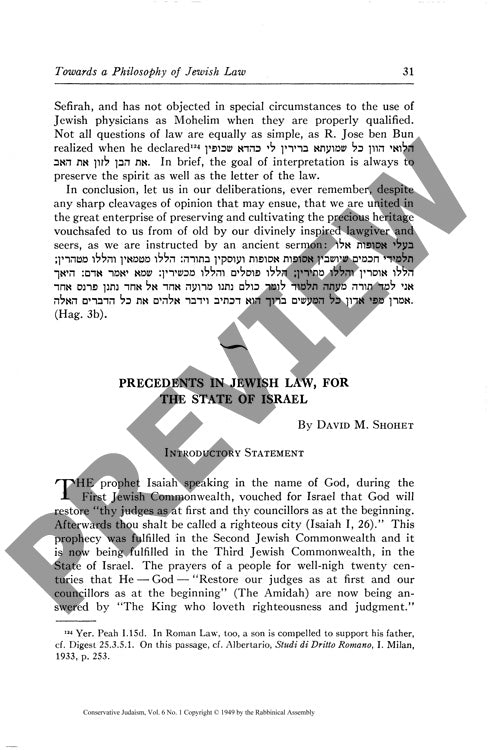Precedents in Jewish Law for the State O
Couldn't load pickup availability
Can ancient Jewish legal principles help build a modern democratic state? Drawing from Talmudic and post-Talmudic sources, careful analysis reveals substantial precedent for inclusive governance in Jewish law that remains relevant to contemporary Israel's legal and constitutional challenges. Through comprehensive examination of rabbinic literature, three critical issues emerge: the legal status of non-Jewish citizens, women's roles in the judiciary, and the flexibility of Jewish law to adapt to changing circumstances. The research demonstrates that traditional sources support equal treatment for "strangers" who observe basic moral precepts (the Seven Noachian Commandments), suggesting a framework for protecting minority rights. Historical analysis of women's roles indicates that traditional restrictions stemmed from protective rather than discriminatory intentions, warranting reconsideration in light of modern social conditions. The case study of the Sanhedrin at Jabneh illustrates how Jewish law has historically evolved while preserving core principles. The methodology involved systematic analysis of Biblical, Talmudic, and rabbinic texts to identify relevant legal principles and their historical applications. These findings suggest that Israel's proposed constitution aligns with fundamental Jewish legal principles, enabling the state to function as a modern democracy while maintaining authentic connections to traditional Jewish jurisprudence.

More Information
-
Physical Description
-
Publication Information
Published 1949
ISBN
-
Publication Credits
David Shohet

